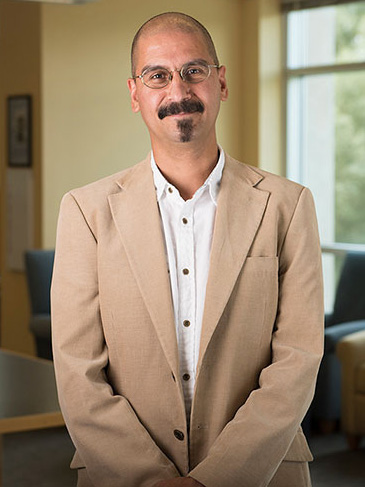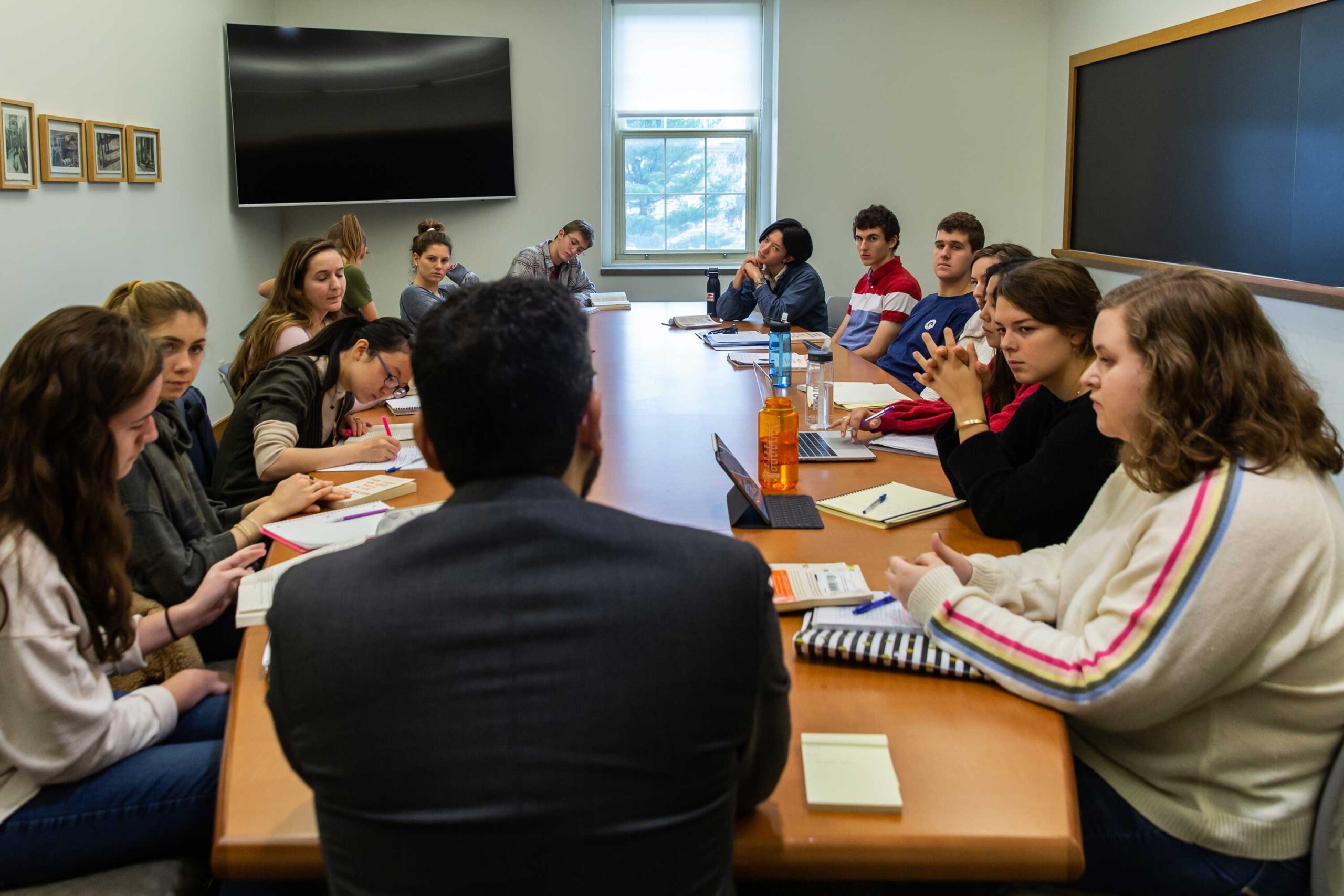The English poet John Donne famously wrote, “No man is an island/entire of itself.” But in philosophy circles, individuals are often regarded as their own isolated islands in terms of how they develop knowledge.

Carl Benton Straub ’58 Endowed Chair in Culture and the Environment Jason Kawall, professor of philosophy and environmental studies, thinks Donne is in the right. He believes that more credit needs to be given to those who help generate knowledge in others. Kawall presents his case in the paper, “Testimony, epistemic egoism and epistemic credit,” published in the European Journal of Philosophy.
Epistemology is the branch of philosophy that studies the nature, value, and extent of our knowledge. The traditional definition of a good or successful epistemic agent is one who has acquired a good deal of knowledge, particularly valuable knowledge, for himself or herself.

“What I propose,” Kawall says, “is that, if we see knowledge as valuable, then rather than looking at an epistemic agent’s own personal stock of knowledge and understanding, we should also look at how that agent produces knowledge in others and contributes to the knowledge of a community.”
Not all agents play the same role in sparking knowledge in others; intention is a key differentiator. In his paper, Kawall distinguishes between four kinds of creditable roles. Direct epistemic credit is due to someone who applies their skills to intentionally attempt to create knowledge in another person, and that specific content is adopted as a persistent belief or truth.
“A simple example is if you tell me what time it is,” Kawall explains. “You’ve given me information about the time, and I now have the true belief of what time it is.” Teachers, of course, deserve direct epistemic credit when the course material they’ve shared is accepted and retained by their students. (Evidence of which, of course, will be produced on the next exam.)
Indirect epistemic credit is due when an agent intentionally plays an important supporting role. The agent doesn’t provide the explicit content for the person’s belief but in some way helps the person create that belief. For example, a lab assistant might carefully calibrate a delicate instrument that a researcher depends on to make scientific observations. “The assistant plays a key role in the process that will produce that knowledge,” Kawall explains.
Auxiliary epistemic credit is a broad category that recognizes an agent who intentionally helps in the production of knowledge but does not use his or her own cognitive skills or abilities to directly influence the creation of those beliefs.
“For example, if someone donates textbooks to an impoverished school district, that person intends to help generate knowledge,” Kawall explains. “But it’s up to the teachers and students to create that knowledge.”
Incidental credit is earned when an agent unintentionally plays a role in another person gaining knowledge. “For example, if you give me a ride somewhere, you’re giving me an opportunity to look around and form beliefs about the scenery that’s passing by,” Kawall says. “You didn’t deliberately point things out to me or try to teach me about landmarks along the way; it’s incidental.”
Kawall’s paper invites the question: Why is it important to accord agents proper epistemic credit? “First, it seems worth acknowledging some of the more subtle ways in which people can help contribute to the knowledge of others,” he says. “Second, if we start acknowledging this sort of credit more, it might make people pay more attention to the ways they share information and the kind of information they share. They might be more careful in verifying their sources and correcting errors they find. That would improve the quality of knowledge and understanding across our community as a whole.”
His point resonates in our polarized times.
“It is important to realize that we are all involved in our community’s stock of knowledge and understanding,” Kawall says. “We need to take that role and responsibility seriously. We can now see very clearly the impacts of what happens when disinformation, false beliefs, and lies are spread. We can benefit our society and each other so much by properly listening to each other — doing our best to overcome our biases and prejudices, and carefully attending to the words and testimony of others in our community.”
For as the next two lines of John Donne’s poem state, “Every man is a piece of the continent/A part of its main.”

